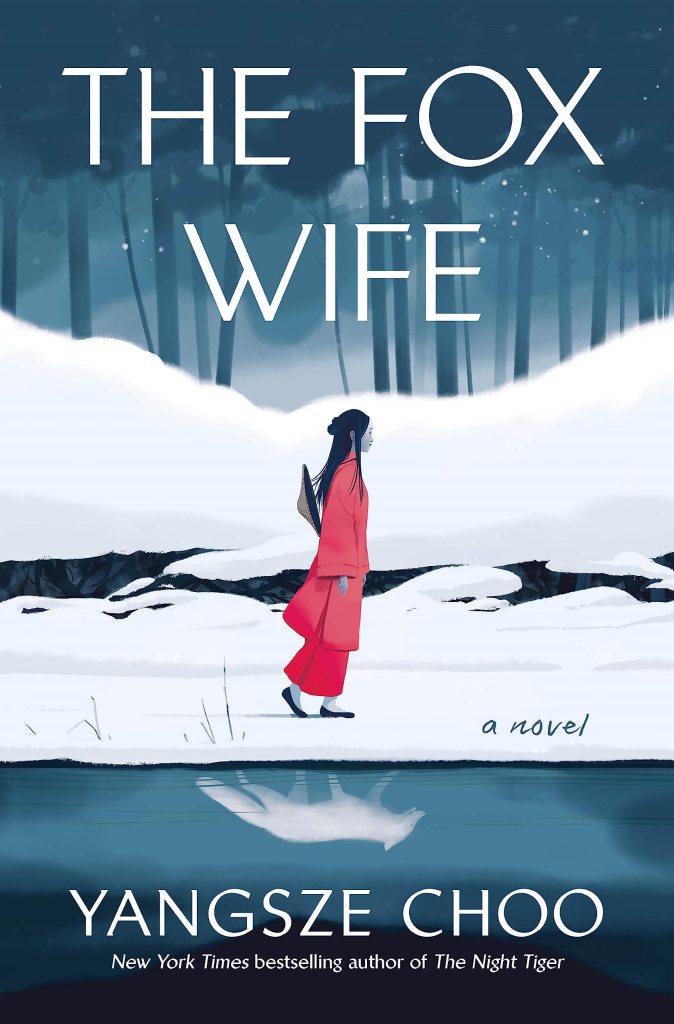I always find it interesting when authors compare and contrast their characters. The best heroes and villains, after all, are two sides of the same coin: alike in drive and often goal, too, but who take very different routes to get there. There is no hero or villain among the main characters of Yangsze Choo’s The Fox Wife, but its two main characters are at once wildly alike and completely different from the other.
It’s not easy to travel without a coin to your name and only the stolen clothes on your back, but Snow is determined to make it work. After all, nothing but geography lies between her and a photographer, Bektu Nikan—the man who killed her daughter. It is true that Bektu Nikan could not have possibly known that the baby fox he abused to the point of giving it a long and painful death was a magical fox spirit, but that level of animal abuse deserves some revenge, anyway. Snow tracks him to a port city but needs time—and resources—to find him in the bustling city. An offered job as a servant to an older woman seems like just what the doctor ordered.
Meanwhile, Bao, a widower who has always had an uncanny ability to tell truth from lies, has been tasked with finding the true identity of a, ahem, lady of pleasure who died on the stoop of a local restaurant. There’s no apparent cause of death, but the restauranteur is worried that, if the proper rites are not completed for the deceased, he will find himself with a haunted restaurant. Bao’s search quickly suggests a magical fox might have been involved. But he also finds ties to a photographer named Bektu Nikan, and a photograph of a beguiling young woman. As talk of revolution amidst the waning days of the Qing Empire makes tensions rise, Bao and Snow’s paths intertwine, with the mysterious Bektu Nikan in each of their crosshairs.

Though both characters in this dual-narrative story single-mindedly trek toward the same ultimate goal, they also share a deep sadness that changes their motivations in different ways. Snow’s sorrow fuels her rage; Bao’s recent loss of his wife, and the still-smarting loss of his first love when he was a teenager, cause him to reflect on how he has lived out his sixty-plus years of life and what matters most for however much time he has left. The actions of decades before reverberate to the present for both characters in ways as unique to them as their characters are from each other. As different as they are, they’re both compelling in their own ways, and I couldn’t help but root for both—even as it seemed their objectives directly contradicted the other’s.
But that showdown doesn’t come until late in the book, when many of the consequences of earlier choices have already come home to roost. There are far more pressing problems at hand, like blackmail, murder, coercion, very bad food poisoning, and more magical foxes to compound the chaos. As the various plotlines come together, the story does verge on zany, but successfully toes the line. And for a story that started with death and revenge, I was happy to allow Choo some coincidences (or, perhaps, twists of fate) to lead the characters to an improbably happy ending.
